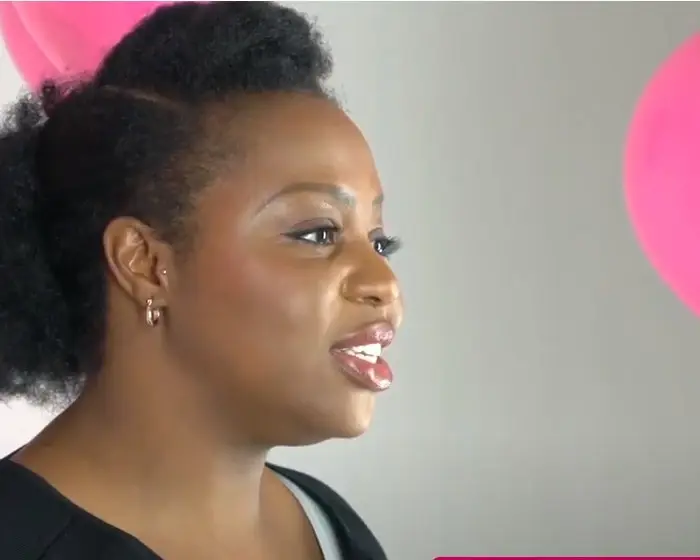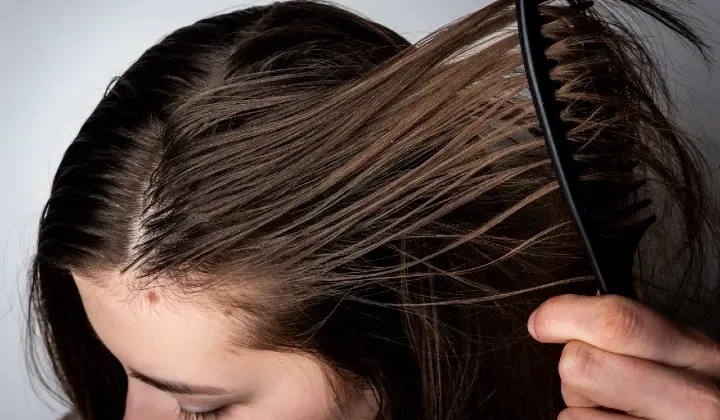16/08/2019
The How's and Why's of Dandruff
Dandruff is a common scalp condition, it affects around 62% of the population and causes oily-looking white, yellowish or grey flakes of dead skin to appear on your scalp and in your hair. These flakes are often more noticeable if they fall from your scalp and hair and onto your shoulders and can affect your self-esteem. People who suffer from dandruff may also experience an irritated scalp that can be itchy, scaly and uncomfortable.
Dandruff isn’t contagious but it can be unpleasant and without the correct treatment it can be hard to get rid of. The good news is there are treatments available that you can do yourself at home and provide fast, long-lasting relief while treating the root cause of the problem.
What are the symptoms of dandruff?
● An itchy, inflamed, red or dry scalp
● Sebum secretion
● Visible flakes of dead skin on your scalp, hair or shoulders
What causes dandruff?
There are a number of factors that can contribute to the cause of dandruff from dry skin to hair products and certain illnesses or conditions. Dandruff isn’t caused by poor hygiene but can become more noticeable if you do not regularly wash your hair. Let’s take a look at some of the main causes of dandruff.
Malassezia
Malassezia is a family of fungi that is naturally found on the skin surfaces of many humans and is the most common cause of dandruff and seborrhoeic dermatitis. Malassezia is a yeast-like fungus that requires fat to grow and is commonly found in areas that contain sebaceous glands such as the scalp, face and upper part of the body.
When the fungus grows it can cause additional skin cell growth, which in turn causes inflammation which creates more sebum secretion. Old skin cells fall off quicker which will be visible as dandruff.
Seborrhoeic dermatitis
Seborrhoeic dermatitis is a common skin condition that is caused by an overgrowth of yeast on the skin. Seborrhoeic dermatitis can cause your scalp, face and other areas of your body to become itchy, scaly and red and is a cause of more severe dandruff.
Dry skin
Dry skin contributes to causing dandruff, especially in the winter when we are exposed to colder temperatures and central heating. If you have flakes in your hair or on your scalp that are small and do not appear to be oily, or if you have dry skin on other parts of your body then dry skin is the most likely reason you are suffering from dandruff.
Skin conditions
Dandruff can be caused or worsened by certain illnesses such as Parkinson’s disease and skin conditions such as eczema and psoriasis. Eczema causes the skin to become dry, red flaky and itchy. Psoriasis is a condition that causes red, flaky patches of skin and can result in silvery scales. Both conditions can affect the sufferer's scalp and cause dandruff.
Hair products
Sensitivity to hair products such as hair dye, mousse, gel and hairspray can cause allergic reactions or contact dermatitis. Ingredients within these hair products can irritate the skin and damage the outer layer of skin that causes the scalp to become dry and flaky and result in dandruff.
Seasonal changes
Changes in the weather temperature and our environment such as more exposure to warmer temperatures can cause the skin cells on our scalps to dry out and lead to a flare-up of dandruff.
Already tried everything?
Discover how Nizoral can help. Nizoral A-D Shampoo treats and prevents dandruff and the other symptoms that can occur with dandruff such as a dry, greasy, flaky, red and itchy scalp. Nizoral also treats the inflammation associated with dandruff and relieves scalp redness and itching.
Gentle to your hair, Nizoral’s targeted action specifically treats the underlying causes of dandruff and not just the symptoms to help you get rid of dandruff. Dermatologically tested and fragrance-free, the effects of Nizoral can last for up to two weeks after rinsing.
It remains active on your skin for up to seven days to help combat stubborn dandruff and is clinically proven to be superior to Zinc Pyrithione shampoo for treating severe dandruff in four weeks.





